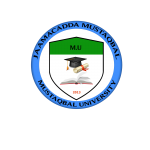Bachelor of Accounting
The Bachelor of Accounting is designed to enable the learner to develop knowledge and skills in reporting, analysing and managing financial resources in business and government entities.
Course competencies
After a successful completion of bachelor’s degree in accounting, the learner will be able to:
1. Demonstrate the understanding of basic technical knowledge in the area of financial accounting and reporting (including governmental and nonprofit).
2. Demonstrate the understanding of basic technical knowledge in the area of cost/managerial accounting.
3. Demonstrate the understanding of basic technical knowledge in the area of auditing and attest services.
4. Demonstrate the understanding of basic technical knowledge in the area of taxation.
5. Demonstrate the understanding of basic technical knowledge in the area of business law.
6. Deliver a professional oral presentation.
7. Develop a professional written communication
8. Demonstrate the ability to access accounting standards.
9. Demonstrate the ability to identify the relevant section(s) of the accounting standards for a given issue.
10. Demonstrate the ability to develop a reasonable solution, based on accounting standards, for an accounting issue.
Program Duration
This is a four-year program. Every academic year consists of two 24-week semesters of theories and practical attachment as dictated by the course curriculum.
Admission Requirements
Admission criteria in MU training programmes have far-reaching implications in education and training processes and the outcomes of such programmes, thus, the graduate’s competency and the quality of services.
Candidates for direct or in-service admission into the course programme must possess the stipulated qualification requirements in Somalia, and the equivalent, especially in neighboring countries.
Any student seeking admission from any MU Department to pursue the course should fulfill the following requirements:
1. Be not younger than 18 years of age.
2. Submit secondary leaving certificate with minimum average marks of not less than 60% from recognized school and umbrella and passed the Somali Government centralized exam.
3. Application for admission.
4. Pay the registration and enrollment fees as per required.
5. Fill the application form fittingly.
6. Successfully pass the university entrance examination,
7. Bring the following documents with you:-
a. Original secondary certificate (both from the school & the government)
b. Original national identity card/passport/birth certificate
c. Two (2) certified clear sets of photocopies of (a) and (b)
d. Seven (7) certified passport sized photos
Assessment Approaches
Formative
Formative assessment is used as a bridge between learning and teaching. It allows instructors to gather real data about students as they work, then adjust their instruction to better serve students at their current learning level. In modern education, formative assessment has been proven to be highly effective not only for student learning, but for faculty teaching and, as a result, increases the overall quality of learning. Formative assessment used in the department include; Continuous Assessment Tests, Assignments, Quizzes, Random Assessment Tests, End of Semester Examinations and Supplementary Examinations.
Summative
The goal of summative assessment is to evaluate student learning at the end of an instructional unit/module. Summative assessment include; Final Qualifying Examinations (theory), Final Qualifying Examinations (theory and practical), End of Semester Examinations, and Promotional Examinations.
Teaching strategies
Teaching approach is a set of principles, beliefs, or ideas about the nature of learning which is translated into the classroom while teaching strategy is a long term plan of action designed to achieve a particular goal. These include the following; Informal Lectures/Discussions, Modified Lectures, Group Discussion, Small Group Discussions, Integrating Technology, Cooperative Learning, Demonstrations and return demonstration, Role plays, Team Teaching, Project Assignments, Case Presentations, Self-Directed Learning, Programmed Learning, Simulations, Educational Trips, Film Shows and Problem Based Learning.
Teaching Aids/Instructional Materials
The following teaching/instructional materials include the following; Chalk Board, White Board, Flip Chart , Flip Charts Stand, Posters, Poster Stand, Videos, Videos tapes, Video camera, Slides, Slide Projectors, Models of various body parts/organs, Study guides, Lesson plans, Course outlines, Computers, Laptops, LCD projectors, Over Head Projectors.
